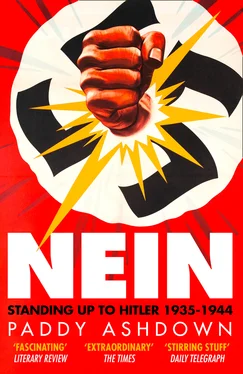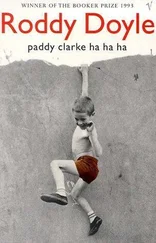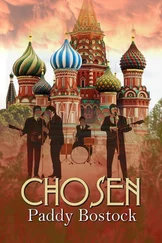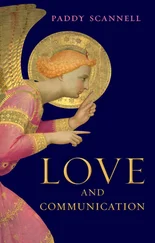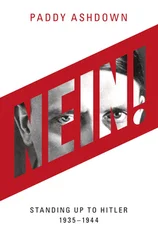What Theo Kordt did not know, however, was that an hour earlier, at 10 a.m., Chamberlain had rung the British ambassador in Rome and instructed him to get a message to Mussolini asking the Italian dictator to intervene ‘in the last useful hours to save peace and civilization’. The ambassador swiftly passed the message on to Il Duce. At 11 a.m., as Erich Kordt was being assured that Britain was ready to go to war at two o’clock that afternoon, Mussolini, who had been something of a bystander up to now, was ringing the Italian ambassador in Berlin, Bernardo Attolico: ‘Go to the Führer and tell him, considering that I will be by his side, whatever may happen, that I advise him to delay the start of hostilities for twenty-four hours. In the meantime I intend to study what can be done to resolve the problem.’
Shortly afterwards a second message from No. 10 arrived at the British embassy in Rome instructing the ambassador to get a message to the Italians ‘suggesting Mussolini supports Chamberlain’s proposal for a conference in Germany involving Italy, Germany, France and Britain to solve the Sudetenland problem’. A little later a telegram arrived in Downing Street from the ambassador in Rome saying that Mussolini had agreed to Chamberlain’s proposal, and would recommend it to Hitler.
As all this was going on, a constant stream of visitors flowed in and out of Hitler’s Chancellery. At 11.15 the French ambassador, the luxuriantly moustachioed André François-Poncet, speaking on behalf of both Paris and London and unaware of what had been happening between London and Rome, urged Hitler to accept Chamberlain’s proposal for more talks. Twenty-five minutes later a portly, stooped figure emerged from a taxi. Bald, bespectacled, sweating, breathless and without his hat, ambassador Attolico scurried in through the Chancellery doors, bearing the message from Mussolini. Hitler broke off from seeing François-Poncet to meet the new arrival. ‘Il Duce informs you,’ Attolico said, his high-pitched voice rising several notes from the tension, ‘that whatever you decide, Führer, Fascist Italy stands behind you. Il Duce is, however of the opinion that it would be wise to accept the British proposal and begs you to refrain from mobilisation.’ Finally, with just two hours to go to the 2 p.m. deadline, Hitler, the man whose reputation had been built on ‘the triumph of the will’, backed down, announcing that, instead of invading Czechoslovakia, he would accept talks at Munich.
Chamberlain heard the news in the House of Commons at a little before 4.20 that afternoon, and immediately announced he would go to Munich the following day. There was a moment of stunned silence, and then the Commons chamber erupted with shouts of elation and joy.
And so there was no order to invade, no launching of armies, and no trigger for a coup. It was over.
A senior army general involved in the aborted coup said later, ‘I had already passed the order to Witzleben to start the coup when the information reached us that Chamberlain and Daladier were coming to Munich and therefore I had to withdraw the order … the coup d’état was to have been justified before the people by saying that Hitler was provoking a war and that, without a violent coup d’état war could not be prevented. Now that was no longer possible.’ Another asked sharply, ‘What can troops possibly do against a leader this victorious?’
Though they would try again many times in the coming years to replicate the coup of 1938, this was the best chance the conspirators would get to remove Hitler – and, thanks to the British prime minister, they had lost it.
French ambassador François-Poncet, as famous for his merciless eye as he was for his magnificent moustaches, described Chamberlain arriving at Munich on 30 September: ‘Grey, stooped, with bushy eyebrows, blotched skin and chapped hands – he seemed typical of a grand Englishman from a bygone age.’
As all the world knows, what followed was the Munich agreement which gifted the Sudetenland to Hitler without a shot being fired.
Chamberlain returned in triumph to Croydon Aerodrome, with a flutter of paper in his hand, announcing ‘peace for our time’. In the House of Commons and across Britain that day there was cheering and jubilation. But not from Winston Churchill, who denounced Chamberlain’s deal as ‘the first foretaste of a bitter cup’ to shouts of abuse from all sides of the Commons chamber. For a Britain dangerously underprepared for war, there was a substantial upside to Munich – the country now had more time to get ready. But the cost to national prestige, standing and influence was huge. And the consequence of now having to deal with a Hitler magnified in size to his own people, and in his own sense of destiny, would be very great.
The French prime minister Édouard Daladier understood perhaps better than Chamberlain what had happened. Waving to cheering crowds on his return to Paris, he was heard to mutter under his breath. ‘ Ah, les cons. S’ils savaient! ’ †
Hitler celebrated a triumph too, though it was not the one he had wanted. He was initially furious at the outcome of Munich, flying into a rage and shouting that Chamberlain had tricked him out of the military victory over the whole of Czechoslovakia that he wanted so badly. But he soon realised that the British prime minister had delivered him victory enough for the moment. The rest of Czechoslovakia could come later.
As the Commons debated in London, German troops marched through jubilant crowds into the Czech Sudetenland. They were followed four days later by the Führer standing in the front of an open-topped Mercedes, his right arm stretched out ramrod-straight in the Nazi salute, which the crowd returned with cheers, children bearing flowers and a forest of extended arms. Czechoslovakia, brought into existence by the Versailles Treaty, would over the next years lose 70 per cent of its iron, steel and electricity production, a third of its people, and enough weapons and ammunition from its arsenals and armaments factories to equip half the Wehrmacht.
Two days later, on 5 October, Churchill pronounced a final accusatory obsequy in the House of Commons over the dismembered remains of Hitler’s prey: ‘Silent, mournful, abandoned, broken, Czechoslovakia recedes into the darkness … terrible words have for the time being been pronounced against the Western democracies: “Thou art weighed in the balance and found wanting.”’
On 4 November, five weeks after Munich, members of Churchill’s Epping Constituency Conservative Association moved a motion of no confidence in their MP. Churchill survived by the skin of his teeth, thanks to what he later described as ‘the speech of my life’. Thus was Hitler denied a double victory: one at Munich which gave him the Sudetenland; and one at Epping, where fate came within a hair’s breadth of removing his most capable adversary in the coming conflict.
The Abwehr’s ‘eternal plotter’ Hans Bernd Gisevius, who had been amongst the most active of the conspirators right from the start, commented bitterly after the war: ‘Peace for our time? Let us put it a bit more realistically. Chamberlain saved Hitler.’
In a letter to an American friend, Carl Goerdeler wrote: ‘The Munich agreement was just sheer capitulation by France and England … By refusing to take a small risk, Chamberlain has made a war inevitable. Both the British and French nations will now have to defend their freedom with arms in hand …’
In his memoirs written after the war, Erich Kordt recorded: ‘Never since 1933 was there such a good chance to free Germany and the world.’
On the evening the Munich agreement was signed, the key Berlin plotters gathered in the grand house of the commander of the Berlin garrison, Erwin von Witzleben. In the words of one of those present, ‘all our lovely plans’ were unceremoniously burnt in Witzleben’s baronial fireplace.
Читать дальше
